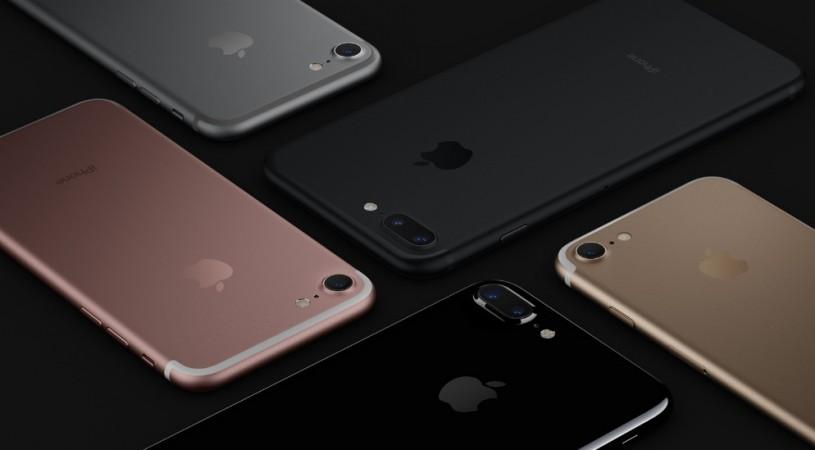
It is a tough battle for smartphone makers, especially the ones on the top as their dominance is threatened by several newcomers. Apple is placing a lot of faith in its iPhone 8's success considering the amount of research and money spent on its development. You won't be wrong to think the tenth-anniversary edition iPhone will be flawless, but here's something you really need to know.
Everyone's talking about the visible upgrades the iPhone 8 will bag, such as the OLED display with integrated Touch ID sensor, revamped design, wireless charging and more, but little do they know about the core specs, which translate towards better performance of the phone.
As the reliance on mobile devices increases, people want to do everything on their smartphones and OEMs are making sure that works just fine. It is important to stay connected to the internet to perform most tasks, so chip makers Qualcomm and Intel are ahead of their game to bring high-speed networks on the phone.
Qualcomm has succeeded in a way to deliver maximum download speeds of 1Gbps with its Snapdragon X16, while Intel is lagging behind with its XMM 7480's 600Mbps limit. Apple has a partnership with both chip makers and it is fair to think that the iPhone maker will choose the best for its flagship smartphone this year.
But if you've been following Apple's courtroom battles lately, (no, not with Samsung or Nokia), then you'd know about the brutality of the legal quarrel over royalties. If you haven't already guessed, there's a high possibility the iPhones coming this year won't use Qualcomm's X16 modem entirely and also procure some of the Intel XMM7480 modems to follow its strategy to never rely on a single supplier. Like last year, Apple will likely throttle the speeds of Qualcomm modems to match that of Intel modems, inside sources told Bloomberg.
This means users won't experience the high-speed downloads on their brand new iPhone even though rival phones like Samsung Galaxy S8, Sony Xperia XZ Premium and HTC U11 readily offer them. Owing to the ongoing differences between Qualcomm and Apple, the Cupertino tech giant is reportedly planning to cut ties with the chip maker.
Intel is keeping up with Qualcomm as it recently announced its new XMM 7560 modem in February, which matches the gigabit speeds of Qualcomm. But as Bloomberg sources pointed out, Intel's new chips won't be ready in time for iPhone 8's production.
In reality, achieving 1 Gbps is only possible in ideal conditions with LTE Advanced and compatible towers. Apple's reason behind ditching Qualcomm's chipset could be the lack of an appropriate setup. But U.S. carriers – Verizon, AT&T, T-Mobile and Sprint – have declared 2017 as the year of 1 Gbps speeds. So, there's a good chance iPhone 8 will not be a part of any wireless telecom marketing stints this year.
A gigabit modem, as irrelevant as it may be for consumers, is a crucial addition to a flagship smartphone. If Apple is going after its rival Samsung with full force, it better make its armour impenetrable. We can already imagine the kind of mockery Apple will be subjected to by the likes of HTC and Samsung for lagging behind their flagships. For now, we can simply assume Apple has some trick and pulls a rabbit out of its digital hat to surprise everyone. There's still time. Stay tuned for updates.












